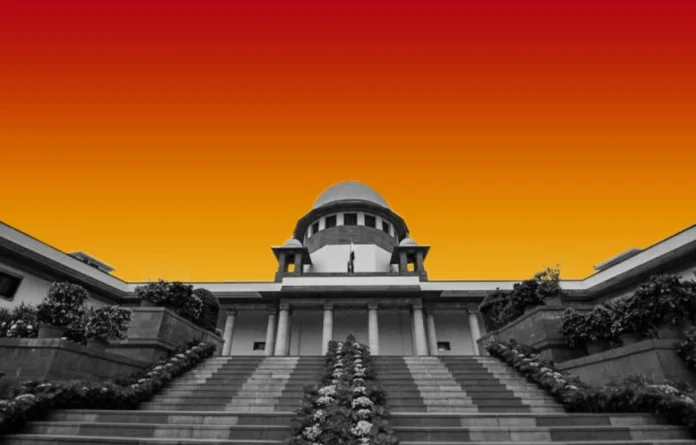3The Supreme Court on Wednesday deleted the bail condition, which required former Delhi Deputy Chief Minister and Aam Aadmi Party (AAP) leader Manish Sisodia to mark his attendance before the investigating officer every Monday and Thursday in the Delhi Excise policy scam case.
The Bench of Justice BR Gavai and Justice KV Viswanathan ruled that the condition requiring Sisodia to visit police station twice was not needed.
The Apex Court, however, told Sisodia that he has to attend trial without fail.
On August 9 this year, the Bench of Justice BR Gavai and Justice KV Viswanathan granted bail to Sisodia, who was arrested last year over his alleged involvement in the Delhi Liquor Policy scam case.
The top court of the country allowed the bail applications filed by Sisodia in both the CBI and ED cases considering the delay in commencing the trial in the liquor policy case.
It observed that on account of long incarceration running around 17 months and trial having not been commenced, the appellant has been deprived of the right to speedy trial.
There was no remotest possibility of the trial being completed in the near future, considering that there were over 400 witnesses and thousands of documents, noted the Bench.
To keep Sisodia under custody in such a scenario would result in grave violation of the fundamental right to personal liberty, observed the Court, adding that the appellant was having ‘deep roots’ in the society and hence, he was not a flight-risk accused.
Most of the evidence in the case were documentary in nature, which were already collected; hence there was no possibility of tampering.
Regarding the apprehension of influencing or intimidating witnesses, the top court of the country said that conditions could be imposed.
Though there was no error on part of the trial court and the High Court regarding the merits of the matter, both the courts erred in not considering the aspect of delay in the trial, noted the Bench.
It said both the trial court and the Delhi High Court should not have ignored the observations in the October 2023 judgment of the Supreme Court that prolonged incarceration and the delay in trial should be read into Section 45 of the Prevention of Money Laundering Act.
While pronouncing the judgment, Justice Gavai stated that Sisodia cannot be faulted for filing applications for inspection of the documents, including the unrelied documents of the prosecution, as they were necessary for ensuring a fair trial.
The Bench further observed that the stand taken by the agencies in the case was contradictory, because on one hand, the agencies said that they were ready to expedite the trial, however on the other hand, on June 4, they sought one-month time to file supplementary charge sheets.
It said if the investigation was not yet complete as in July, 2024, how could the trial conclude before that. The Apex Court referred to the statement of the agencies recorded in the October 2023 judgment that the trial would be complete within 6-8 months.
It said relegating Sisodia to the trial court and the High Court again would amount to making him play a game of snakes and ladders. The bench observed that a citizen could not be made to run from pillar to post for personal liberty.
Rejecting the preliminary objections made by ED and CBI, the top court of the country observed that the liberty granted by its June 4 order to revive Sisodia’s bail prayers should be construed as a liberty to file a petition in the Supreme Court itself.
Additional Solicitor General SV Raju requested the Court to impose certain conditions akin to those imposed in the Arvin Kejriwal case – that he should not visit the Chief Minister’s office or the Delhi Secretariat. However, the Bench rejected this request.
The Central Bureau of Investigation (CBI) had arrested Sisodia on February 26, 2023 under the Prevention of Corruption (PC) Act in connection with the Delhi liquor policy case. He was subsequently arrested by the Directorate of Enforcement on March 9 under the Prevention of Money Laundering Act (PMLA).
The AAP leader has filed separate petitions before various courts seeking bail in two cases registered by the CBI and the ED.


